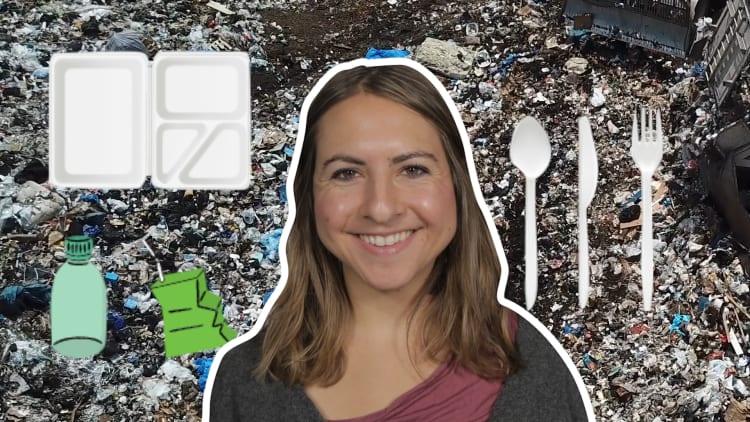Over the past few years, sustainability has become one of the biggest buzzwords in personal finance, with consumers rethinking exactly where and how they spend their money.
Climate change is one motivator: 72% of Americans say global warming is a personally important issue, according to a 2019 poll conducted by researchers from Yale and George Mason University. And 44% support a carbon tax, another survey found.
You need only look to the news to understand why. A 2018 U.N. panel found that humans have 12 years to significantly reduce carbon emissions to ensure a "safe and sustainable" planet. Daily headlines — from superstorms ravaging the U.S. to the wildfires that raged across Australia earlier this year — make clear that no part of the planet is immune from the increasingly severe effects of climate change and warming temperatures.
To combat the growing existential threat, low- and no-buy initiatives have proliferated online, conscious consumerism has grown into a movement and younger generations are putting more and more money into so-called socially-conscious, or sustainable, investments. Nearly 50% of U.S. consumers plan to reduce their environmental footprint by changing their consumption habits, according to Nielsen, while Morningstar data shows total assets invested in sustainable funds more than tripled in 2019.
Going green
Changing individual behaviors isn't enough to combat climate change, of course — governments and businesses bear the bulk of the responsibility. Asset manager BlackRock's recent move to prioritize sustainability in its investments indicates businesses might start moving in a more sustainable direction. State and local governments, including California and New York, are introducing sustainability initiatives, including a recent push to ban certain single-use plastics.
But individuals do have a part to play, according to sustainability experts: personal consumption makes up nearly 70% of U.S. GDP, indicating consumers hold significant power.
With that in mind, over the course of the year, CNBC Make It will look at different facets of consumerism and finance and how they relate to climate change and sustainability. We'll address what socially conscious investing really means (and how it works); outline concrete steps individuals can take to cut their eco-footprint while explaining the difference these small-scale actions actually make; and evaluate the greenest options in a variety of consumer-facing industries from online retail to travel to beauty.
What you buy and how you allocate your money is a deeply personal decision, and we want to hear from our readers about their experiences and questions. You can email reporter Alicia Adamczyk at alicia.adamczyk@nbcuni.com with questions, ideas or anecdotes.
If you're curious about sustainable investing or reducing your consumption habits, here are some resources to get you started:
- Freaked out about the future of the planet? Don't let fear ruin your finances
- How to slash your eco-footprint—and save money at the same time
- Use this free tool to see if your investments are sustainable
- 85% of investors are interested in impact investing—here's how to make your portfolio more sustainable
- What you need to know about 'gender lens' investing
- 5 easy ways to be more sustainable and save money in 2020
And stay tuned for more in CNBC Make It's sustainability series.
Check out: The best credit cards of 2020 could earn you over $1,000 in 5 years
Don't miss: What I learned from adopting a 'zero waste' lifestyle (it wasn't as easy as I thought)



